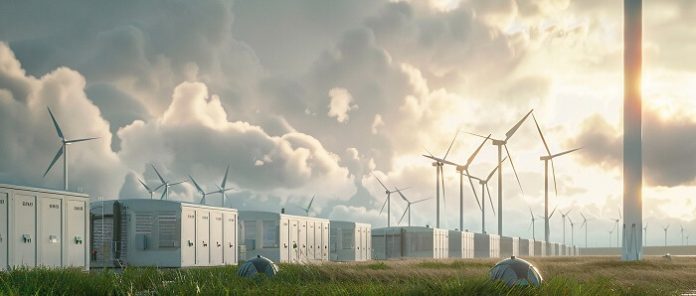India’s renewable energy storage capacity is set to experience substantial growth, projected to reach 6 GW by the fiscal year 2028, up from less than 1 GW as of March 2024, according to a report from CRISIL. The anticipated expansion is expected to be fuelled by a robust pipeline of ongoing projects and a busy schedule of upcoming auctions.
The report underscores the importance of the increase in storage capacity for effectively managing the growing share of renewable energy (RE) in the country’s overall power generation mix.
CRISIL notes that continued government support for renewable energy development and the recent discovery of competitive tariffs for round-the-clock renewable energy have strengthened confidence in adopting the technologies.
As the share of solar and wind energy increases, storage solutions are becoming increasingly vital to balance supply with peak demand periods, which typically occur in the morning and evening. To meet these challenges, the government is investing in the necessary infrastructure, including standalone storage systems and projects that combine renewable energy generation with storage.
Recent auction activity has intensified, with about three GW of standalone storage and ten GW of storage-linked projects, including two GW of storage, auctioned in the last two fiscal years. As of May 2024, this has resulted in a pipeline of approximately six GW of storage capacity.
The growth in storage capacity is crucial for achieving the government’s goal of increasing the share of renewable energy in the national power mix to 20-22 percent by 2028. However, progress has been slower than anticipated, partly due to the reluctance of state distribution companies (discoms) to finalize power purchase agreements (PPAs).
According to Manish Gupta, Senior Director, CRISIL Ratings, 60-65 percent of the projects had not yet secured PPAs as of May 2024. One major hurdle to broader adoption is the higher tariff associated with storage projects compared to other renewable energy bids, due to the additional costs involved.
As reported by knnindia.co.in, despite this, there is optimism that government support for renewable energy and the relative competitiveness of storage tariffs compared to other continuous power sources, including coal-based thermal plants, will encourage greater adoption.






























